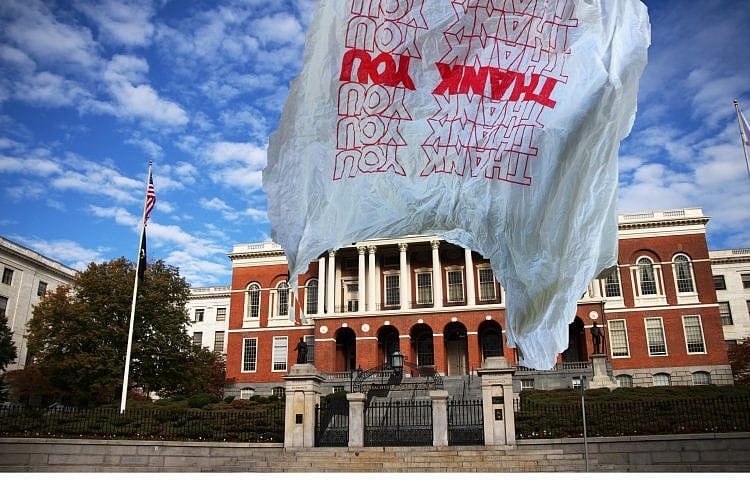Medical Experts Commend Massachusetts For Switching Back To Single-Use Plastic Bags

So-called single-use paper and plastic bags are not only back in every Massachusetts community, but they are also the only option at grocery stores.
To try to slow the spread of coronavirus, earlier this week Massachusetts Governor Charlie Baker temporarily banned the use of reusable shopping bags. He also mandated that the single-use bags be available to consumers free of charge.

